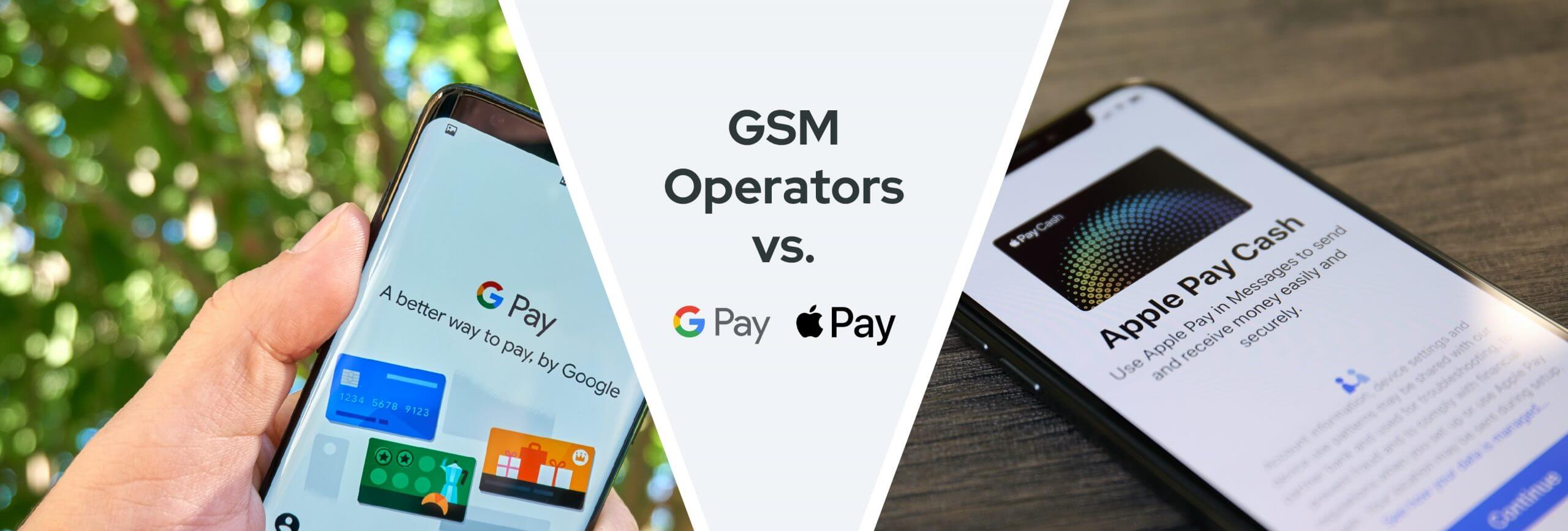Why GSM Operators Should Provide Financial Services?

In the early part of the 21st century, US company Walmart attempted to start a bank. It wasn’t a revolutionary idea, but the world kept throwing up obstacles to stop them. It was clear that there were many who wanted to resist a company like Walmart entering the banking sector, and eventually the retailer gave up. Today, however, the biggest tech companies are taking the leap into banking, and it is looking increasingly like this will be a big part of the world’s future.
Google has confirmed reports that it will be offering checking accounts in 2020 as it begins a new focus on consumer finance. Uber is planning Uber Money as a bank for its drivers, while Apple has its hugely substantial credit slab. Even Facebook has announced its Facebook Pay platform, and Amazon has been reportedly exploring the option of its own checking accounts.
The gears of profit have somewhat slowed for US tech, as the traditional ways of optimising and improving what’s on offer are being stretched to their limits. There is an undeniable symbiosis between popular tech platforms and financial services, so tech firms are waking up to the fact that they can offer financial services right at the point where they are needed. Financial technology, or FinTech, is the innovation that is competing with traditional financial methods to deliver much-needed financial services, and this is where technology companies are seeing the most opportunity.
What is the future of banking?
Consumers are very often not in love with their current banks, but looking for a viable alternative can be quite stressful. People need a significant incentive to switch banks, and even that might not be enough for some. This is a challenge that technology companies will need to overcome if they do want to become banks. Another challenge is the fact that many banks are acknowledging the change and working on their own solutions.
So-called ‘challenger’ banks are emerging which offer their own digital services with less overhead than conventional banks. They are targeting those customers who feel like existing banks are not meeting their needs, but so far few startups have managed to make that model work at scale. So far, they have struggled to be profitable and encounter issues with reliability that are very unattractive to customers.
Big technology companies are better positioned to make it work. They have platforms with strong, reliable infrastructure and vast swathes of data to help meet the needs of customers. They don’t even need to make money off the banking products per se; for example, Amazon could save itself money by opening a checking account, because it wouldn’t have to pay the fees involved with customers using a third-party account. It’s clear that the future of banking lies in a closer merging of technology and financial systems, with FinTech solutions growing sharply. Just as new and existing tech companies are exploring ways to enter the banking sector, finance companies are looking to incorporate more technology and digital services into their offerings.
GSM operators will not disappear if they do not establish a bank
As more and more of the world’s biggest tech giants begin to establish and build their own unique banks, there is only one solution to keep original GSM operators from losing swathes of customers. What is such a solution, you might ask? Well, a GSM company must also begin to provide financial services, just as their new competitors originally did before branching out.
The solution, starting an intuitive and easy-to-navigate MFS platform, has never been easier. Mobile banking is becoming far more commonplace, walk-in banks as the preferred method of controlling your money. Due to this, FinTech solutions have never been so readily accessible, so just about any business is able to start up their own financial services.
However, building banks is no easy feat – you might require the help of experts. Look no further than Tmob; since 2009, we have been a powerhouse company that champions the wonder of mobile technology.
Summary
For the time being, no technology company is taking the gamble of completely upending their business model to incorporate finance in a big way. Instead, they are gradually adding in new elements to their existing finance features, taking baby steps towards that inevitable future. They are speaking about a long term goal of enabling more people to transact on their platforms, locking customers into their business models more comprehensively than ever before.
Credit cards, accounts and things like mobile wallets are the most likely way forward for the short term. There is minimal risk in following this route, meaning the companies’ security is likely to be preserved. But the longer-term designs on the finance industry are likely to be much bigger than this, and technology companies will need to start early with the adoption of financial instruments if they want to keep up with the evolving nature of their industry. GSM operators are a key part of the services offered by tech companies, and if they want to stay in touch with audience demands they will need to incorporate the appropriate technologies themselves. This is where things like MFS Platform come in.
Mobile wallets are changing the way customers manage and spend their money, with a SIM and HCE-based contactless technology for ultimate convenience. By adopting mobile wallet technologies like MFS Platform, both banks and technology companies can develop a sustainable standard of experience for their users.
As customers interact with the new financial solutions offered by the technology giants, they will need their GSM operators to offer the necessary software to accommodate the developing FinTech market. Services like digital purchasing, daily transactions, paying for utilities, storing credit cards/subscriptions, and more can all be delivered in a single platform – it’s a powerful way to deliver the kind of customer experience that will ensure loyalty and help you strengthen your business models for the long term.
If GSM companies are to retain their customers in the future, they will need to offer the functionality to accommodate the banking solutions emerging from tech companies. MFS Platform is a comprehensive solution to achieve this, and time is running out to get on board.
Tmob Presents
We offer both R & D aid and cloud-based digital experience platforms, giving users only the most innovative of solutions. As our products include M-Banking and HCE Wallet, we’re confident that any GSM operator will be able to create their own financial services through us.
Contact our team at Thinks Mobility to start the ball rolling.




